Newcastle disease is an infection of domestic poultry birds and also other bird species with virulent Newcastle disease virus (NDV). It is a contagious viral avian disease affecting many domestic and wild poultry birds, and it is transmissible to humans.
Although the disease can infect humans, most case are non-symptomatic. Rarely it can cause a mild fever and/or conjunctivitis in humans.
Effects of this disease are most notable in domestic poultry due to their high susceptibility and the potential for severe impacts of an epizootic on the poultry industry. And it is endemic to many countries.
Exposure of humans to infected birds can cause mild conjumctivitis and influenza-like symptoms, but the virus otherwise poses not hazard to human health. No treatment for NDV is known, but the use of prophylactic vaccines and sanitary measures reduces the likelihood of outbreaks.[1]
Newcastle disease was first identified in Java, Indonesia in the year of 1926, and in Newcastle-upon-Tyne, England in the year in 1927. However, it may have prevalent as early as 1898, when a disease wiped out all the domestic fowl in northwest Scotland.
Causes
Newcastle is a worldwide problem that presents primarily as an acute respiratory disease, but depression, nervous manifestations, or diarrhea may be the predominant clinical form.

Severity depends on the virulence of the infecting virus and host susceptibility. Occurrence of the disease is reportable and may result in trade restrictions.
Symptoms of Newcastle Disease
- Newcastle disease affected chicken leaves the group and take shelter in the corner of poultry house.
- It always stay in dozing condition.
- Healthy bird suddenly jump high and make a sound then die.
- Affected bird suffers by byspnoea.
- The bird may paralyzed.
- Mucus flow from nose.
- The closet of affected chicken looks like white lime.
- The color of the closet sometimes become green, yellow or white.
- Laying hen lay less eggs. Sometime stops laying.
- The eyes become swelled.
- Lobe and head crest become blackish.
- The egg of the newcastle disease affected bird become thin shelled, soft and distorted.
- Neck can be curved and the head always traverses.
- The affected bird moves slowly.
- The closet become very unsavory and mixed with the tail feather.
- If newcastle disease affect much, the bird die suddenly.
Defense Method
There are no easy treatment for this disease.You have to be conscious for preventing this disease. Vaccination is the only method to prevent this disease.
If you vaccinate your chicken regularly then the chicken will be free from newcastle disease. This vaccine can be found in all govt. and private animal hospital. The vaccine of this disease are of two types which are described below.
B.C.R.D.V
This vaccine is for baby chicken. This vaccine should apply 4 to 6 day aged baby chicken. Disease prevention power of this vaccine works up to two month. The vaccine of the ampoule should mixed well with 6cc distilled water.
Then apply it one whit per chicken on its one eye at the age of 7 days and apply another whit to the other eye of the chicken at the age of 21 days. Per 100 chicken 1 ampoule vaccine is suitable.
R.D.V
This vaccine is applicable for the chicken aged more than two month. This vaccine should provide after every four month. Mix the vaccine of the ampoule with 100 cc distilled water.
Mix it in a cold, dry and shadow place and apply to chicken as fast as possible. Apply it to the runs of chicken through injection at the rate of 1cc per chicken. Sun light damages the power of this poultry vaccines. So, mix it very carefully.
Remedy
There is no remedy of this disease. Proper care, management and timely vaccination can prevent this disease.
- Separate the affected bird from the healthy one for treatment.
- Don’t through the dead body of affected bird here and there.
- The dead bird should burn with fire or keep it under the soil.
- Vaccinate the bird before the disease season.
- Potassium mixed water can be feed to the both affected and healthy chicken. This will make good result.
- Feed the chicken timshen mixed (1 gram per 16 litter) water for five days.
Prevention
Any animals showing symptoms of Newcastle disease should be isolated immediately. New birds should also be vaccinated before being introduced to a flock.
An inactivated viral vaccine is available, as well as various combination vaccines. A thermotolerant vaccine is available for controlling Newcastle disease in underdeveloped countries.


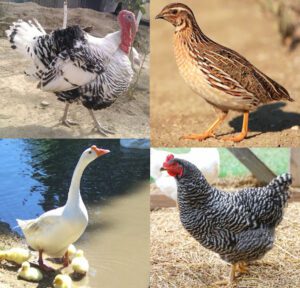
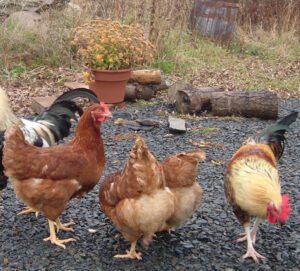
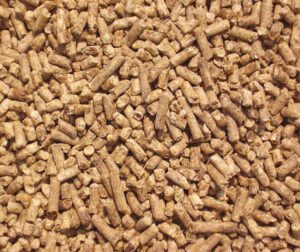
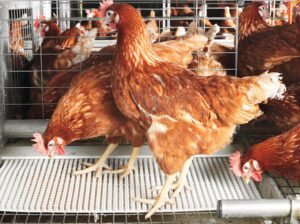
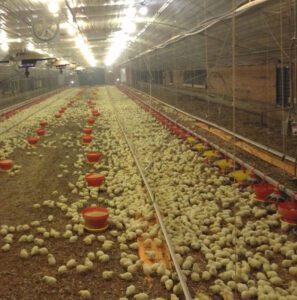
Thankfully to all lecturers for ur lesson